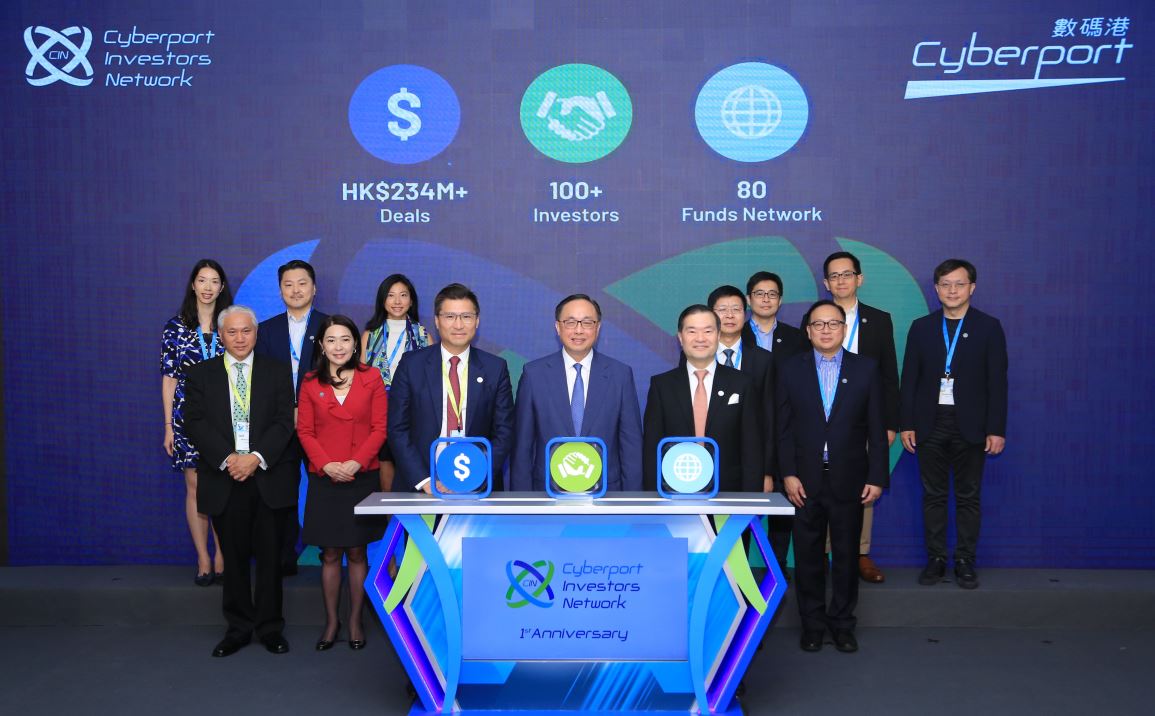The Coresight Research team attended the Cyberport Venture Capital Forum on November 8 at Cyberport, Hong Kong. The forum is the annual signature event of Cyberport, Hong Kong’s digital-technology development zone under the initiative of Hong Kong government, to connect investors with local tech startups and facilitate knowledge sharing on technology investment trends. Cyberport focuses on five key clusters: E-sports/Digital entertainment; FinTech; AI/Big data; Smart city/Smart living; and,Blockchain solutions.
Here are our takeaways from the event, the state of Hong Kong technology startups and what investors look for.
Institutional Support Keeping up the Entrepreneurial Momentum
In opening remarks, Nicholas W. Yang, Hong Kong’s Secretary for Innovation noted there are currently over 2,000 tech startups in Hong Kong, about 30% of them founded by non-Hong Kongers. Thanks to institutional support and a well-established community of investors, Hong Kong has upped its game in creating a more favorable breeding ground for startups. The pace of fundraising has been quickened remarkably: In the six-month period from April to September, 2018, Cyberport startups raised over HK$3.89 billion (US$497 million) of investment funding.
The forum marks the one-year anniversary of the Cyberport Investors Network (CIN), a platform that connects global investors with Cyberport startups. In just one year’s time, CIN has attracted over 80 fund networks with more than 100 investors, raising a total amount of HK$234 million (US$29.9 million).
 Celebration of First Anniversary of Cyberport Investors Network
Source: Cyberport
Celebration of First Anniversary of Cyberport Investors Network
Source: Cyberport
What Attracts Investors?
With an influx of startups, investors have many options. To attract investment, businesses must distinguish themselves. We gleaned the following insights from the panel discussions at the forum.
A Well-Being Driven Economy
Theresa Teng, Partner of Silverlink Capital,a boutique private equity firm focusing on investing in areas which can benefit from technologies, said it is now the time of what she referred to as the “Pan-Happiness economy,”referring to the increasing importance people attach to well-being. As Chinese consumers’ disposable incomes continue to rise, people are pursuing greater fulfillment in life. For example, knowledge-sharing platforms such as Zhihu.com have become popular, as more people look for information on a variety of well-being topics, even spiritual needs.
Products and services that enhance well-being or quality of life are gaining popularity.
Survival for Those with Technological Breakthrough
Annabel Yang, General Manager of venture capital and private equity companyG5 Capital,commented that the mobile Internet industry is getting crowded since almost all aspects from clothing, accommodation, dining and transportation are already occupied by successful businesses, which narrows the opportunities for startups.
However, Yang stressed that those companies able to develop core technologies and demonstrate technological breakthroughs will thrive,especially as China’s national policies support technological innovation. Leveraging official policy by entering those areas the central government supports will dramatically improve the odds of success.
Grasp the Essence of New Technology to Address the Key Pain Points
Bonnie Cheung, Partner at 500 Startups, one of the most active seed investment companies globally and an active investor in blockchain projects, commented that startups should ensure their solutions address the key pain points as enabled by new technology. From her experience meeting with blockchain-solution startups, many failed to tackle the core issue of facilitating transactions between unknown individuals without the need of a trusted intermediary. “They are only digitalizing documents and there is no difference from some of the enterprise systems in use,” Cheung said. Startups must ensure their offerings address the key pain points with the capabilities of new technology.
 Investor matching corner
Source: Coresight Research
Investor matching corner
Source: Coresight Research
Key Takeaways
Hong Kong has quickened its pace of investing in startups while institutional support and investors’ funding are crucial for the growth of the thousands of nascent businesses in the city.
While the competition is getting more intense with a more widespread entrepreneurial culture, businesses able to demonstrate technological breakthroughs and deliver technology solutions will thrive. It also helps if products can enhance personal well-being as Chinese consumers use rising disposable income to pursue greater fulfillments in life.

 Celebration of First Anniversary of Cyberport Investors Network
Source: Cyberport
Celebration of First Anniversary of Cyberport Investors Network
Source: Cyberport Investor matching corner
Source: Coresight Research
Investor matching corner
Source: Coresight Research